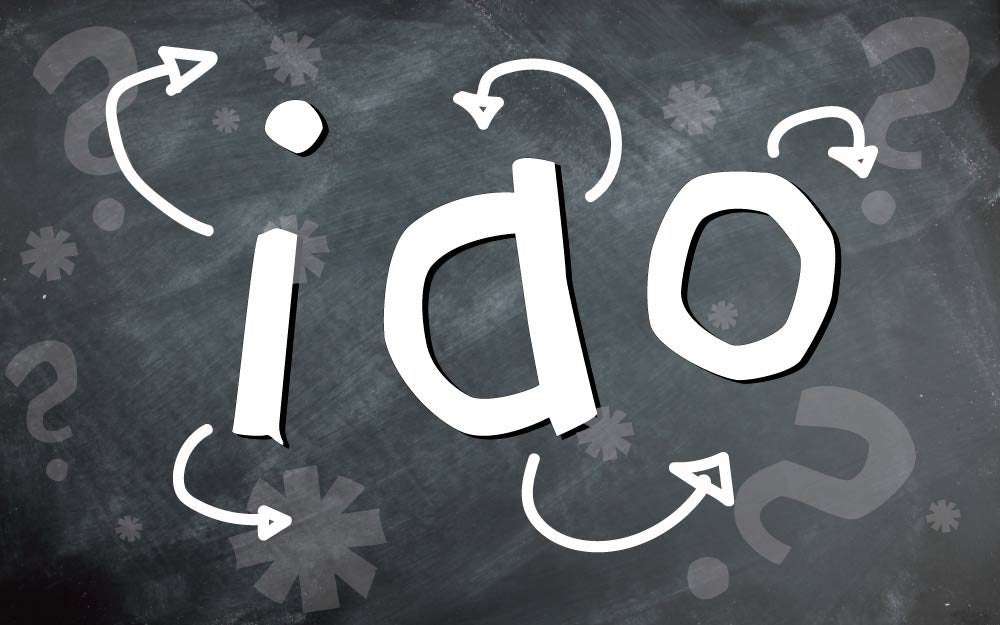You've known this English rule your entire life—and never heard of it before now.
Can you find the error in the following sentence?
“The bells chimed dong, dang, ding.”
Don’t dally-dilly thinking about it—you probably felt the offending phrase zag-zig through your gut with the intensity of a pong ping ball. Who in their right mind says, “dong, dang, ding”? Everyone knows it should be, “ding, dang, dong.” Why? Well… ‘cause. It’s just one of those secret English rules you didn’t know you always knew.
While there’s nothing grammatically wrong with calling your mom for a quick chat-chit or blasting your favorite jam on the hop-hip channel, you will be rightly mocked for uttering any of these flop-flipped phrases. And for that you can thank the rule of “ablaut reduplication”—a hidden formula all English speakers know implicitly despite having never heard of it before.
Reduplication, as you can probably guess, refers to when a word is repeated in phrases like bye-bye, choo-choo, and Nae Nae. Ablaut reduplication refers specifically when the interior vowels of a word are altered in repetition, giving us phrases like tick-tock, riffraff, and the Mary Poppins-approved spit-spot. And while you may not consciously realize it, almost every example of ablaut reduplication in the English language follows the exact same pattern. Author Mark Forsyth (who went viral last year for revealing the secret rule of adjective order you didn’t know you knew) explains the persnickety dictum like this:
“If there are three words then the order has to go I, A, O. If there are two words then the first is I and the second is either A or O.”
That explains why an English-speaker will never bat an eye at “flimflam” or “bish-bash-bosh,” no matter how nonsensical the individual words may seem.
As to why this I-A-O pattern has such a firm hold in our linguistic history, nobody can say. Forsyth calls it a topic of “endless debate” among linguists that may originate in the arcane movements of the human tongue or an ancient language of the Caucasus. Whatever the case, the world’s English speakers are on-board, and you will never catch Lucy accusing Charlie Brown of being washy-wishy.
Whats your favorite example of ablaut reduplication? Feel free to add to our list below:

Sgt_Spatula on December 11st, 2019 at 17:12 UTC »
Who else is sitting here trying desperately to think of something that breaks the rule?
palmfranz on December 11st, 2019 at 16:46 UTC »
Here's a bunch of common examples, flop-flipped:
cross criss dally dilly faddle fiddle hop hip jabber jibber Kong King Mash mish patter pitter splash splish zag zigpalmfranz on December 11st, 2019 at 16:45 UTC »
I wish I had space to make the title more precise:
This only applies when repeating words in a phrase (a.k.a. reduplication), not simply repeating a word ("Look! Look!"). You can reduplicate without changing vowels, like "bye bye" or "choo choo". You can also do it by rhyming, like "razzle dazzle" or "lovey dovey". But here's the rule: If you do change vowels, the first one must be an I. The next is either A or O. If there are three words, the order is I, A, O. ("ding dang dong" not "dong dang ding") EDIT: Sometimes it's not a literal I, but rather an EE (like "teeter totter" or "see saw"). I/EE are "high vowels", while A/O are "low vowels". High-low is the actual order. Even the consonants don't need to be exact repetitions! They can just be similar (but with matching syllables & emphases). Like: "Tic Tac Toe" and "Bada-Bing, Bada-Boom".